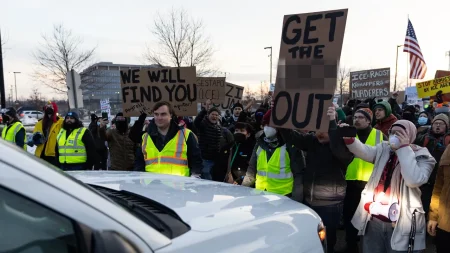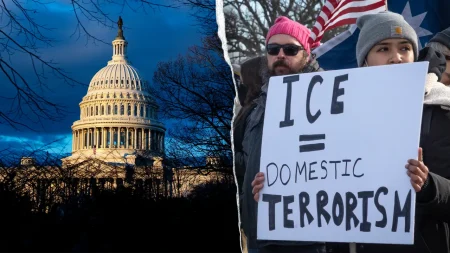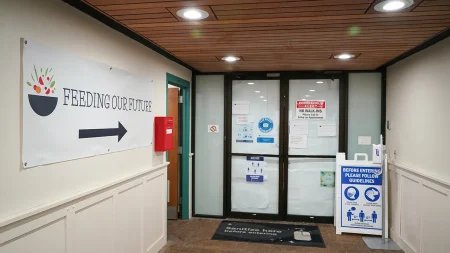Immigrants Face Crippling Financial Penalties Under Strict Immigration Enforcement
In a dramatic escalation of immigration enforcement policies, thousands of immigrants are facing potentially life-altering financial penalties that have become the centerpiece of a new legal battle. A lawsuit filed Thursday in Massachusetts challenges the federal government’s practice of imposing daily fines of $998 on immigrants who remain in the country without legal status – penalties that have accumulated to as much as $1.8 million per person in some cases. The legal action, which seeks class-action status, represents two immigrant women but aims to advocate for over 21,500 immigrants who collectively face more than $6 billion in fines under President Trump’s renewed deportation policies.
The lawsuit argues these penalties are fundamentally unconstitutional, describing them as “ruinous civil fines” that are wildly disproportionate to the gravity of immigration violations. One plaintiff identified only as “Nancy M.” exemplifies the situation’s severity – despite actively working to comply with immigration authorities through annual check-ins under an “order of supervision” while pursuing legal permanent residency, she received a shocking $1.8 million bill. This staggering amount accumulated through daily $998 penalties assessed over a five-year period, despite her efforts to follow legal procedures. Advocates like Hasan Shafiqullah from The Legal Aid Society, which represents the immigrants, emphasize the fundamental unfairness: “The people we serve are doing exactly what the law requires — pursuing legal relief through immigration courts and immigration agencies. In return, the government is threatening to seize their wages, cars, even their homes.”
This enforcement approach aligns with the Trump administration’s broader immigration strategy announced shortly after the president returned to office in January. The Department of Homeland Security publicly stated in February that immigrants without legal status would face “significant financial penalty” if they chose not to “self-deport.” The message from President Trump and Homeland Security Secretary Kristi Noem has been unambiguous, according to DHS spokeswoman Tricia McLaughlin: “leave now.” The administration has consistently emphasized its commitment to enforcing “all our immigration laws” without exception or selectivity, positioning these financial penalties as a powerful incentive for voluntary departure.
The Department of Homeland Security has pushed back forcefully against the legal challenge, characterizing it as “just another attempt to nullify federal immigration law through activist litigation.” McLaughlin’s statement frames the plaintiffs as individuals who are “here illegally and are suing so they can remain in the country illegally without any consequence or penalty – contrary to decades-old federal law.” This perspective highlights the fundamental disagreement at the heart of the case: whether these financial penalties represent appropriate enforcement of existing laws or an unconstitutionally excessive punishment that undermines due process protections.
The controversy touches on deeper questions about proportionality in immigration enforcement. Legal advocates argue that many of those facing penalties are actively attempting to navigate a complex and often slow-moving immigration system, pursuing legitimate pathways to legal status while complying with supervision requirements. The crushing weight of accumulating daily fines – which can quickly reach amounts far beyond what most working people could ever hope to pay – creates an impossible situation for those caught in this enforcement mechanism. The potential impact extends beyond the individuals directly affected, potentially disrupting families and communities, while creating practical questions about how such astronomical sums could ever realistically be collected.
This legal battle unfolds against the backdrop of the administration’s broader efforts to reduce unauthorized immigration through stricter enforcement measures. While supporters view these penalties as a necessary deterrent that reinforces the rule of law, critics see them as an unnecessarily punitive approach that fails to account for the human complexity of immigration cases and the various factors that lead people to remain in the United States despite lacking formal legal status. The outcome of this lawsuit could significantly impact how immigration enforcement proceeds during President Trump’s second term, potentially affecting the financial security and legal standing of tens of thousands of immigrants currently living under the shadow of these accumulating penalties.












